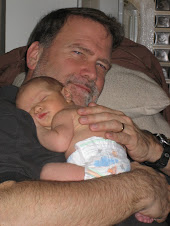The murder of 32 students at Virginia Tech is not only a horrific story, but one that prompts a lot of peripheral discussions--some of which are meaningful, some of which are frustrating.
The meaningful category is enhanced by stories of heroism, such as the one concerning the professor who was a Holocaust survivor and who blocked the door against the gunman so that his student's could escape. He lost his life in that act of courage.
Another news story moves to the frustrating--where people try to take this incident and make a case for gun control. Now, I am not a gun owner, but I do believe that the guns here were not the problem. And I also wonder if responsible people who had passed both firearms proficiency tests and appropriate background checks possessed guns on campus, whether some of those who died might be alive.
Nor do I believe that the shooter was necessarily "sick." "Sick" means "ill," which means suffering from a disease. We are not responsible for getting sick. Our culture tries to say that a person who does what most consider "unthinkable" must be ill.
I would offer another option. He may simply be evil. He may have given himself over to patterns of thinking and acting that were totally self-centered, self-focused, and self-aggrandizing. He certainly viewed others' lives as unworthy of protection. He saw no reason to restrain his own desires, impulses, and actions. In short, he represents some of our sinful culture's values carried to extremes. Self-focused living is the sine qua non of today's society, as "what I feel" becomes final arbiter, and advertisers, politicians, and even religious professionals seek to serve the all knowing "I". The killer here was disturbed--I do not debate that. But his "disturbance" may not have found its source in a disease beyond his control, but in the existence of evil in the world and in each human being, and in his choice to indulge that evil.
Of course, my understanding of the Bible leads me to assert that all people are born with this evil at work in their lives--humanity does not start out "good" and then get corrupted. We begin life as what the Bible calls "sinners." I also acknowledge that the only real solution to humanity's sinfulness is the deliverance offered through Jesus Christ's free gift of salvation through his death and resurrection.
So, how is it that not everyone winds up a mass killer, or as some other heinous individual? The Bible speaks of common grace--God's working in his creation to bless it and restrain certain effects of sin for the good of all. Thus, while all are sinners, sinners still can experience God's common grace through law, societal restraints, conscience, etc. But sinners can also make choices to reject all such graces as well as their Source. This would be my brief explanation of why I see such people not as "sick" and needing therapy, but as evil and deserving of the judgment that is entrusted to human authority, up to and including the death penalty.
One more thing. I believe that such evildoers, if they live after their actions, are still not beyond the redeeming grace of God and the free gift of salvation. Since men such as Ted Bundy and Jeffrey Dahmer both made what were deemed by those around them to be sincere professions of faith prior to their deaths, this issue has been raised more than once as an objection to God's grace (or to our understanding of it). God's salvation does not negate or set aside human judgments or consequences. But it does mean that all sinners who repent can be forgiven. Rather than object, we should take heart, for that means we and anyone we know is not beyond God's grace.
Subscribe to:
Post Comments (Atom)







No comments:
Post a Comment